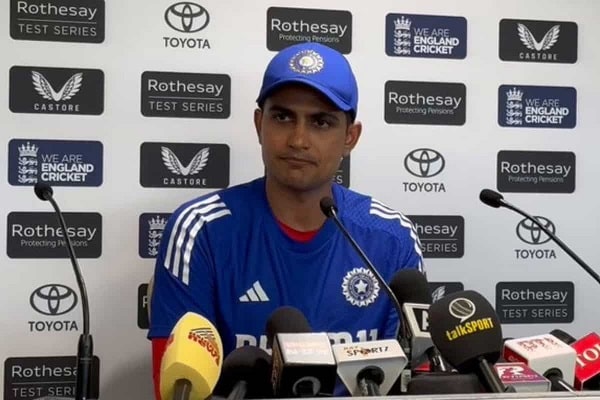India has leveled the 5-match test series by 1-1 as they defeated England by 336 runs at Edgbaston. However, even after leading India to a dominant 336-run victory over England in the second Test at Edgbaston, captain Shubman Gill did not shy away from expressing dissatisfaction with the playing conditions, particularly the state of the pitches and the quality of the Duke balls.

According to Shubman Gill, the surfaces being used in the Anderson-Tendulkar Trophy are far too benign, offering almost no assistance to bowlers once the initial shine of the new ball fades, resulting in matches that are heavily skewed in favour of batsmen.
This trend has been evident throughout the series. The opening Test at Headingley saw all four innings comfortably surpassing the 350-run mark. In the second Test, India alone racked up more than a thousand runs across their two innings. The abundance of runs has been attributed not only to the flatness of the pitches but also to the ineffectiveness of the Duke balls, which Shubman Gill and others claim is losing its hardness within just 15 to 20 overs.
The Indian team has reportedly raised the issue with match officials multiple times during the series. However, umpires have limited authority and cannot replace the ball unless it is visibly out of shape, leaving the bowlers to struggle with a soft, unresponsive ball for most of the innings.

Speaking at the post-match press conference, Shubman Gill acknowledged the challenge faced by his bowlers. He stated that beyond the early overs, conditions are providing little to no help. He pointed out that with a quickly softening ball and docile pitch, there’s barely anything for the bowlers to work with, making it hard to plan or build pressure.
According to him, the bowlers end up playing defensively in such conditions, focusing more on containing runs than attacking for wickets, which undermines the core appeal of Test cricket.
Shubman Gill further commented on how the nature of the surfaces is reminiscent of those typically found in India, labeling them as ‘friendly’ for batting. While he acknowledged the personal advantage this has offered, he is currently the leading run-scorer in the series with 585 runs at an average of 146.25, he stressed that the overall balance of the game is being compromised.

With the next Test scheduled at Lord’s beginning July 10, Shubman Gill predicted that the hosts are unlikely to provide a similarly flat wicket. He expressed hope for a more competitive surface and said that the team would assess the conditions at Lord’s before finalising their playing XI, depending on the nature of the pitch.
Shubman Gill’s remarks highlight a growing concern within the cricketing community about the evolving nature of Test cricket, especially when matches begin to lack the traditional battle between bat and ball that defines the format.
What is your take on this matter? Let us know.




